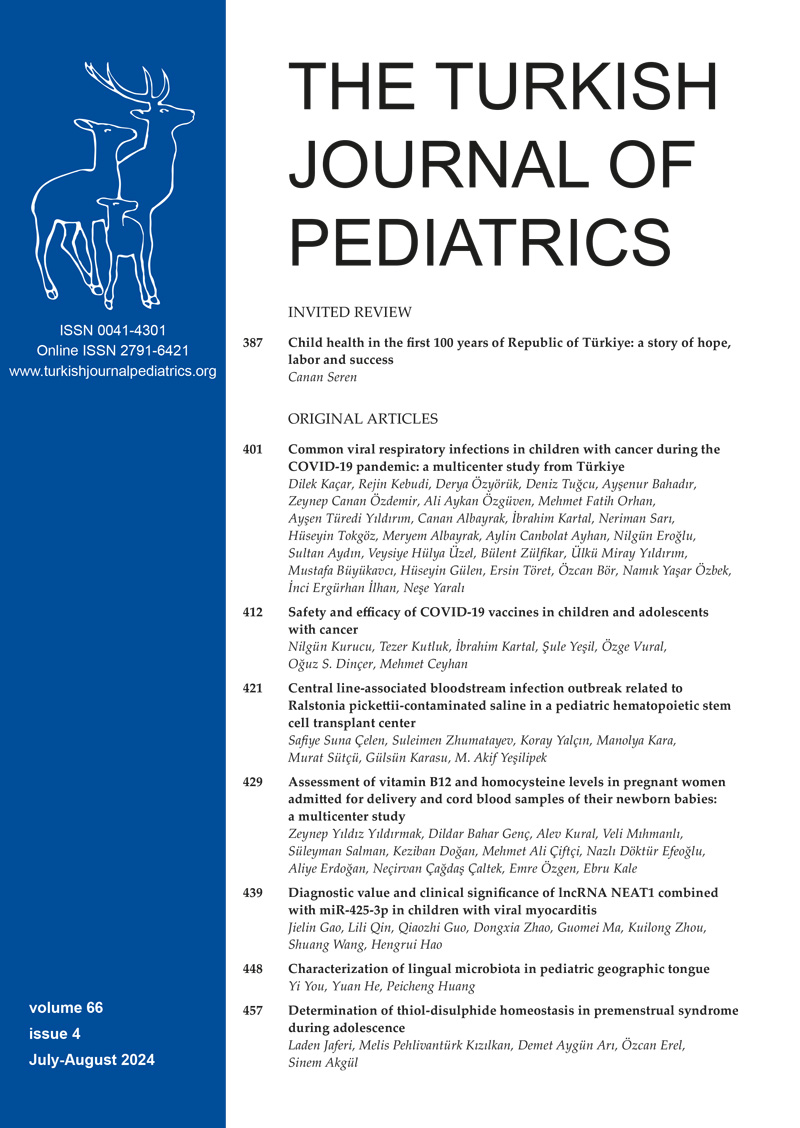Abstract
Background. Cryptococcus neoformans causes cryptococcosis, primarily affecting immunocompromised individuals, including solid-organ transplant recipients, and, less frequently, immunocompetent people.
Case. A 15-year-old male with congenital hepatic fibrosis, portal hypertension, and cirrhosis underwent orthotopic liver transplantation. He received perioperative antimicrobial and antifungal prophylaxis and continued immunosuppressive treatment. Thirty months post-transplant, he presented with fever, hypertension, and sacroiliac joint pain. Peripheral blood cultures showed C. neoformans, confirmed by pan-fungal polymerase chain reaction assay and latex agglutination tests. Despite initial treatment with intravenous (IV) fluconazole, his condition worsened, necessitating intubation for acute hypoxic respiratory failure. Magnetic resonance imaging and computed tomography scans indicated disseminated cryptococcosis with lymphadenitis, possible meningitis, and pneumonia. Treatment was escalated to IV liposomal amphotericin B and 5-flucytosine, while reducing immunosuppressive treatment. Despite negative fungal cultures on the tenth day, the patient deteriorated, developing pancreatitis, pneumonia, and massive gastrointestinal bleeding, leading to death on the 35th day of hospitalization.
Conclusion. This case shows the severity and complexity of managing disseminated cryptococcosis in pediatric liver transplant recipients. Aggressive therapy and early identification are essential for improving outcomes in these high-risk patients.
Keywords: cryptococcosis, liver transplantation, immunocompromised patients
References
- Pappas PG. Cryptococcal infections in non-HIV-infected patients. Trans Am Clin Climatol Assoc 2013; 124: 61-79.
- Williamson PR, Jarvis JN, Panackal AA, et al. Cryptococcal meningitis: epidemiology, immunology, diagnosis and therapy. Nat Rev Neurol 2017; 13: 13-24. https://doi.org/10.1038/nrneurol.2016.167
- Sun HY, Wagener MM, Singh N. Cryptococcosis in solid-organ, hematopoietic stem cell, and tissue transplant recipients: evidence-based evolving trends. Clin Infect Dis 2009; 48: 1566-1576. https://doi.org/10.1086/598936
- Husain S, Wagener MM, Singh N. Cryptococcus neoformans infection in organ transplant recipients: variables influencing clinical characteristics and outcome. Emerg Infect Dis 2001; 7: 375-381. https://doi.org/10.3201/eid0703.010302
- Singh N, Alexander BD, Lortholary O, et al. Cryptococcus neoformans in organ transplant recipients: impact of calcineurin-inhibitor agents on mortality. J Infect Dis 2007; 195: 756-764. https://doi.org/10.1086/511438
- Baddley JW, Forrest GN; AST Infectious Diseases Community of Practice. Cryptococcosis in solid organ transplantation. Am J Transplant 2013; 13(Suppl 4): 242-249. https://doi.org/10.1111/ajt.12116
- Curi ALL, Lazera M, Vasconcelos-Santos DV. Cryptococcosis. In: Zierhut M, Pavesio C, Ohno S, Orefice F, Rao N, editors. Intraocular Inflammation. Berlin, Heidelberg: Springer; 2016: 1277-1283. https://doi.org/10.1007/978-3-540-75387-2_123
- Ellis DE, Zaoutis T, Thibault DP, Crispo JAG, Abraham DS, Willis AW. Readmissions after hospital care for meningitis in the United States. Am J Infect Control 2020; 48: 798-804. https://doi.org/10.1016/j.ajic.2019.10.025
- Ferreira GSA, Watanabe ALC, Trevizoli NC, et al. Transmission of cryptococcosis by liver transplantation: a case report and review of literature. World J Hepatol 2020; 12: 253-261. https://doi.org/10.4254/wjh.v12.i5.253
- Wu G, Vilchez RA, Eidelman B, Fung J, Kormos R, Kusne S. Cryptococcal meningitis in solid organ transplant recipients in a tertiary medical center. Neurology 2000; 54: A286-A287.
- Vilchez RA, Fung J, Kusne S. Cryptococcosis in organ transplant recipients: an overview. Am J Transplant 2002; 2: 575-580. https://doi.org/10.1034/j.1600-6143.2002.20701.x
- Pappas PG, Alexander BD, Andes DR, et al. Invasive fungal infections among organ transplant recipients: results of the Transplant-Associated Infection Surveillance Network (TRANSNET). Clin Infect Dis 2010; 50: 1101-1111. https://doi.org/10.1086/651262
- Baddley JW, Schain DC, Gupte AA, et al. Transmission of cryptococcus neoformans by organ transplantation. Clin Infect Dis 2011; 52: e94-e98. https://doi.org/10.1093/cid/ciq216
- Sun HY, Alexander BD, Lortholary O, et al. Unrecognized pretransplant and donor-derived cryptococcal disease in organ transplant recipients. Clin Infect Dis 2010; 51: 1062-1069. https://doi.org/10.1086/656584
- McHale TC, Boulware DR, Kasibante J, Ssebambulidde K, Skipper CP, Abassi M. Diagnosis and management of cryptococcal meningitis in HIV-infected adults. Clin Microbiol Rev 2023; 36: e0015622. https://doi.org/10.1128/cmr.00156-22
- Tugume L, Ssebambulidde K, Kasibante J, et al. Cryptococcal meningitis. Nat Rev Dis Primers 2023; 9: 62. https://doi.org/10.1038/s41572-023-00472-z
- Perfect JR, Dismukes WE, Dromer F, et al. Clinical practice guidelines for the management of cryptococcal disease: 2010 update by the Infectious Diseases Society of America. Clin Infect Dis 2010; 50: 291-322. https://doi.org/10.1086/649858
- Kwizera R, Omali D, Tadeo K, et al. Evaluation of the dynamiker cryptococcal antigen lateral flow assay for the diagnosis of HIV-associated cryptococcosis. J Clin Microbiol 2021; 59: e02421-e02420. https://doi.org/10.1128/JCM.02421-20
- Miwa T, Okamoto K, Ikeuchi K, et al. The role of frequent screening or diagnostic testing of serum cryptococcal antigen in liver transplant recipients: a descriptive epidemiology. Open Forum Infect Dis 2024; 11: ofae255. https://doi.org/10.1093/ofid/ofae255
Copyright and license
Copyright © 2024 The Author(s). This is an open access article distributed under the Creative Commons Attribution License (CC BY), which permits unrestricted use, distribution, and reproduction in any medium or format, provided the original work is properly cited.















